This summer saw the US release of documentary filmmaker Kevin Hegge’s latest feature TRAMPS!, which looks at the dissolution of the UK punk movement and how fashion and art transformed in the early ’80s via the flamboyant movement that became known as the New Romantics.
In addition to streaming, this month also marks the release of special edition Blu-ray release of the film, stacked with special features, including an unedited interview with fashion stylist and iconoclast Judy Blame, who’s passing in 2018 left a cavern in London’s fashion scene.
The New Romantics movement gave rise to gender-bending pop stars such as Boy George and performance art drag-terrorists like Leigh Bowery. Tramps! charts how this motley crew of club kids took the anti-establishment ideologies formed by punk while swapping out ripped rags for ostentatious glamour. Using the clubs as their catwalk, the New Romantics traipsed through a post war London looking like queens, but living on the dole.
Although the movie looks at youth culture in the early ’80s, Hegge’s documentary translates to any era of young creative people, struggling to make ends meet and create art in an increasingly aggressive and precarious economic world that we live in.
Tramps! was met with rave reviews. Website Loud and Clear says about the film:
“The closing film at this year’s BFI Flare Festival, TRAMPS! is less a documentary and more an audio-visual whirlwind. Right from the beginning, composers Matthew Sims and Verity Susman (and the film’s exemplary sound department) produce a blistering wall of sound. It’s electric and almost industrial, correlating with the synths later used in the 1980s to generate synthpop and conquer America. But it’s also loud and abrasive, as radical as the strong, flamboyant and charismatic personalities that Hegge focuses on.”
Also a long-time OMG.BLOG contributor, Kevin Hegge interviewed LaBruce back in 2021 for the release of this twincestuous feature Saint Narcisse, so we thought we’d flip the script and reach out to get the legendary LaBruce to chat with Hegge about the film.
Its a busy time for LaBruce as well, whose newest book The Revolution Is My Boyfriend was published in June. Meanwhile, BlaB’s latest salacious film, The Visitor, which was met with rave reviews, is being distributed by Utopia’s label Circle Collective in the UK, the US and Canada, and will be released this fall.
TRAMPS! was released June 18 in the United States via Good Deed Entertainment, and is now available to stream on your favorite platform. You can find the Blu-ray edition here.
Read on after the jump for the full Q&A between Bruce LaBruce and Kevin Hegge!
�
Bruce LaBruce: Hi, Kevin. What’s going on with TRAMPS!?
Kevin Hegge: So, it’s finally been released in US! And we did a Blu-ray of it, which is weird but cute.
Who is the distributor?
They’re called Good Deed.
No Good Deed goes unpunished!
Exactly, I know.
Blu-ray though, that’s fancy!
Yeah. And that has all sorts of extras on it, and a “directors commentary” and all that.
Plus, there’s a soundtrack!
The soundtrack already came out. It’s by Memorials Verity from Electrelane and Matt Sims from a bunch of bands, including Wire. It was their first collaboration through this soundtrack, but they’ve since then sort of coalesced into an actual band called Memorials. And that was actually their first release was the Tramps! Soundtrack.
Since then they’ve put out an EP and have an album incoming. They were nominated for a Canadian Screen Award for best soundtrack. I have no idea if they won, but nobody tells you anything when you release a movie. You end up being the last person who knows anything going on.
You’re really into British music and culture, and I know you love a lot of British television. What is it about England? Can you talk about your connection to British music? I know you have a complicated history with Morrissey, for example.
I think it was because I was an early teenager when the whole Brit-pop thing happened.
What band were you most obsessed with?
Blur, obviously, and Suede. I’m currently growing my hair to look like Brett Anderson from the first Suede album era. But I think Suede were my favorite. I love Suede. I remember you did a thing about Blur versus Suede in one of your old columns!
I wrote a comparative analysis of Suede and Blur.
Yeah, which I should revisit ASAP, but I’m currently trying to divorce myself from the whole British thing. I think it’s just true that from the ’60s onwards, a lot of the best bands and movies came out of England. And I think it’s because it’s a different tone than of the American culture that we’re force-fed in dominant culture.
You have these complexities of British art. You have the stiff upper lip versus this really horny, behind-closed-doors sort of sexuality that they have, which I think is probably pretty stifling for actual British people.
It makes you wonder: What’s behind the the stiff upper lip?
Why so stiff? So definitely Tramps! ended up starting with me meeting Jeffrey Hinton and him regaling me with tales about the Warren Street Squat. My sisters were like eight years older than me, and they were part of that whole generation where they loved Boy George. When I was quite young, I was finding out stories about North American people not even knowing or questioning whether he was a man. And the way it compromised the heterosexual experience in North America reinvigorated my interest or my personal relationship to ’80s British pop culture and translated it in a more interesting way to me as an adult.
By the time I was finding out about Warren Street, I was a huge fan of Leigh Bowery and Michael Clark, and all these people. Seeing how interconnected the formative years of them working together married those early childhood discoveries to my grown-up mind. Tramps was a way to make all those things coalesce. I went to London to premiere my first movie, which you were in, and that’s when I met Jeffrey Hinton.
That was your first time?!
That was my first time in London. And it was amazing because they put me up in a hotel and the festival had a lot of money, so they drove you around.
What festival was it?
BFI Flare, the LGBTQ+ film festival.
Right.
That totally changed the trajectory of the rest of my life until now, because of the people I met and the support that I got through other festival programmers. I took the ideas that I had about what I wanted the Fifth Column movie [She Said Boom] to be in terms of talking about the way a city changes and the way it transforms an artist’s ability to work within that city.
Hearing about these squats was a really interesting part to me about when we were talking about the Fifth Column movie. I wanted to look at squats as creative hubs but it didn’t really stay central to the Fifth Column movie. So I thought, I want to jump off of that and apply those themes to this stuff that I’m learning about Warren Street Squat and all the different squats that people lived in in London. And it was a way more concrete aspect of their creative culture. So, it started with picking up from my interests in that theme.
The documentary is very poetic, and I would call it an experimental documentary. Yet, you manage to give this very concise history and analysis of the Blitz Kids and other movements that were going on in England at that time. How did you approach it as a documentary in terms of style and structure? Was a lot of the format discovered in post or did you already have it in your head?
We edited over COVID on Zoom; it started off conversationally. The way it was edited wasn’t chronological at all. We would be talking about BodyMap and then they would mention Michael Clark. We edited it kind of like a conversation flowing and then, quite tangentially…
Associative or?
Yeah, just sort of everyone gabbing intuitively through the story. But then, because it spanned from the ’60s to the mid-’80s, there were these significant time stamps that we had to address eventually… We had to find a chronological structure for the audience’s sake later, which was difficult because it’s not how I was approaching it.
Because it’s a talking heads movie (and people always love to complain about that) and because we had so much access to this incredible archive that I’d spent so long researching, I wanted it to, in terms of the form, operate as a sort of mix tape of that work, and have it be a way to showcase or compile the artworks that were produced at that time. Cramming as much archival as possible in there, and not necessarily having it be archival, but the literal support for what you’re seeing on screen.
So, I think that just using the Super 8 films that were largely experimental as visual backup for the movie pushed it more into an experimental realm.
It has a very strong visual style and, you’re one of the few documentary filmmakers who actually fixes that problem of the talking head, because you treat each interview as a little movie in a way with great care for composition and color and background. So you make the subject, often in their own habitat, interesting. You have that beautiful scene with the woman with the long white hair at the beginning.
Yes, Scarlett.
Scarlett Cannon. Yeah. It’s just an inviting and beautifully composed interview where you don’t mind that people are just sitting talking because it’s so nice to look at.
You had amazing access to the people who you’re making the documentary about. I know that you were really a huge fan of Judy Blame who died not long after you did the interview. Can you talk a bit about him and what that was like?
Yeah, I was and am fairly obsessed with Judy Blame. I think that was an early example of the inter-connectivity of everything that I was talking about. I became aware that all of this stuff that I was watching as a kid, like Björk‘s first album where she’s famously looking like a furry animal in the Margiela sweater that Judy had styled.
Then, the Neneh Cherry videos and Sinead O’Connor videos—these people, I’m huge fans of—John Maybury had directed and Judy had styled them. All of this information that I was carrying with me pop culturally I hadn’t realized was Judy’s work in there. I started seeing how everyone was working together. It allowed me to… What’s the word for when you gauge the value of something?
Reassess.
Reassess all those relationships and my relationship to those works and all these formative images that I was now able to see, further into the practical way that they ended up in those videos via the relationships. So, once I got to speak with Judy about it, his spirit really became central to the tone of the movie. He’s so funny, he’s so gorgeous, and he’s so punk. A lot of this movie was me kind of being like, “Ugh, I have no money. Will I ever have new money? Will I ever be able to survive really?” Feeling like moving back to my hometown and working at the hydro plant was my destiny.
Why am I even trying to make documentaries? It’s like the shittiest possible professional decision you could make. And then seeing my friends continue on, yourself included, people continuing to make work when it’s not necessarily easy or a financially viable lifestyle. So I ended up using these interviews as a way to glean some sort of source of inspiration for my spirit, the way my character would transform, trying to not give up creatively or whatever. And Judy spoke to that so directly.
I guess a lot of people in the film like Princess Julia and and Jeffrey Hinton and Andrew Logan have this indomitable artistic kind of drive, and none of those three are particularly successful in terms of monetary success necessarily. They’ve been living in the same flats forever, and they continue to insist to make money from their work. But they live modestly and I do the same thing. Is that something that inspired you or surprised you?
Well, it was really just like, misery loves company, knowing that other people aren’t working as much or, or knowing that people are just continuing to experience that into an age older than mine was kind of reassurance enough. And also me being a fatalist by nature, it was not surprising that they still live that way. But also in a punk way, I wanted to be like, “Fuck capitalism!”
I just wanted some sort company in that fear. I always find it really fascinating when people are able to be spirited and have faith in the process and not be fatalist about things. So really, asking them: What is wrong with you? Or what’s wrong with me? How, how are you okay with this precariousness? And then I realized that was a valuable theme to include in the movie.
So I literally was just asking people: Did you ever wanna give up? Or asking Judy: Do you feel bitter? Because I’m also a bitter little bitch. Do you feel bitter about working with these huge fashion labels that make the 1% look cool? And then, he was even saying he still has to save up if there’s like a Vivienne Westwood bag or a Chanel bag or something that he wants. He would still have to pay his rent and then save up for those things, even though he works directly with them providing jewelry or whatever for their runway shows, styling the runway shows. His immediate response was, “No, I didn’t wanna be like those twats.”
Yeah, they only give swag to like rich and famous people. That’s the free swag.
Yeah. So he didn’t even get the swag. And like, that would make me feel so resentful.
It should be swag for the masses.
Yeah. It should be swag for the artist. Give the artist the swag.
Some people might say that you give punk a kind of short shrift in the movie . I was never interested in UK or English punk as an American. I was much more into like American hardcore punk. But the punk movement in Britain went by pretty fast. And it was more of this spectacle created by Malcolm McLaren and Johnny Rotten and Vivienne Westwood. But you still have a punk ethos in a way. So, what is your relationship to punk and why did you represent it that way in the movie?
There’s a couple criticisms of the movie. One is that I didn’t get too much into like Margaret Thatcher and the political climate. And the same goes for punk because like I’d said the “p” word so much during the Fifth Column movie, since then, and prior to that in other aspects of my life.
And I just think with Don Letts’ movies and countless broadcasts the UK punk thing, it’s just so commodified. I didn’t really think that there was a need to talk about either of those things too much in this movie.
Or Boy George…
Or Boy George. I did want to connect the ’60s to the ’80s though. When I was playing around with the format, I was talking to Cosey Fanni Tutti, and I was trying to skip punk altogether because originally the narrative around artists appropriating space, like squats or industrial spaces for the purposes of creating art… I thought I wanted to use the industrial revolution musically speaking as a way to sidestep talking about punk.
So I thought I could connect this narrative using this other trajectory, and get into COUM and Throbbing Gristle and everything. But as I was talking to Mark Moore and people that were English, because I also have a background in talking about music and stuff—I have this knee jerk thing against UK punk because it’s just such a commodity. Whereas American Punk is more art based. Especially California punk, which is the stuff that I would be into. The artier California bands are maybe a bit more interesting to talk about or think about or favor. But then when people were talking about the Sex Pistols and everything, they were really emotional about it. They didn’t have that “that’s not real punk, that’s pop culture.” It was a really tangible source of inspiration for these kids. It’s similar to when you have an impression of somebody that you think is a jerk or a loser, and then you meet them through some other lens and you’re like, “Oh, okay, I see the value in this person,” and you end up reevaluating your relationship to that person or whatever.
I thought, “Well, I can’t really ignore that because it is such tangibly inspirational and emotional force in these people’s lives. So can we talk about punk in this movie in a way that is more firsthand?” Like when Andrew Logan’s just talking about it, it was so loud. I thought maybe there’s a way to include the punk story in a more personal way because the goal of the movie was to find more firsthand personal narratives in stuff that you’ve seen elsewhere but coming from a more removed voice. The punk thing, I just kept on trying to cut it shorter and shorter because I felt like it was cringey to keep on talking about that. I wanted this movie to go more into a synthetic world with the ’80s and, musically, everything moved into a more synthetic aesthetic.
I love the whole synth element of musical evolution. Talking more about Kraftwerk, and I love the idiosyncrasies of everybody. I don’t know if it’s in the movie as much as I wanted it to be, but Julia said something really incredible about how by the time punk made it onto TV, we were dressing up like robots. We were listening to Gary Newman, Kraftwerk, Donna Summer, and Giorgio Moroder.
Punk is about change and the essential idea of movement. Just being a contrarian at heart, I wanted to be like, “Well, punk didn’t even exist.” I kind of wanted it to be the movie that disproved that punk happened in this megalomaniacal way. And I don’t know if we quite got there…
What’s that book about Boy George? Like Punk Never Happened?
Oh, I haven’t read that. I read Take It Like a Man though, which is amazing. It’s so funny going back to that book.
Like Punk Never Happened is a really good book.
I have to find it, because I even though I am going through a divorce with the UK thing, I’m trying to get into America and stuff.
You interviewed John Maybury, who’s a great filmmaker in his own right. And you’re really influenced by Derek Jarman who was interwoven through the documentary in terms of his influence and direct references. Can you talk a little bit bit about those filmmakers and how maybe that had an influence on you stylistically or spiritually?
Yeah, stylistically. I think that the inspiration in those stories was really seeing how John Maybury was under Derek Jarman’s wing. One of his earliest jobs was working on Sebastiane with Derek Jarman. So the mentorship element was really the thing that I loved most about that I feel like. I have mentors, in you and other people who welcome you into this world with insight or whatever else. That was another example of missing those connections.
I knew John Maybury’s music videos and his films, and then connecting him to this forefather of Derek Jarman and seeing how that nurtured his relationship, it was really a narrative that I wanted to explore in the movie of passing on the baton generationally and how there can be a support from the work that these generations before you do to make space for you and inspire you.
You end up watching the movies and taking that into your work. That chronological relationship was really inspiring to me. Derek Jarman was obviously a red-blooded gay man who surrounded himself with these younger hot creative kids, where it became a nurturing creative relationship. Having John describe that firsthand was just a trip. Hearing all these people describe these things and all of the stuff these things that didn’t make it in the movie, it was really mind-blowing to me.
Although Derek Jarman and Boy George aren’t in the movie, I wanted to include them in a spiritual way, highlighting their contributions and the visibility they brought to queer experimental work—whether through pop music, quasi-successful films, or more visible films. My aim was to honor Derek Jarman as a forefather and a support system that queers and weirdos can rely on. Jubilee has always been one of my favorite movies, and we were fortunate to receive support from the Jarman Foundation so I wanted to cram as much of his films in there.
There’s a monologue from Jubilee in the middle of the movie. It makes no sense that it’s in the movie, but that just made it even funnier to me because he’s talking about the corporate entity eating the creative entity. That’s sort of in the background of this film where you have to talk about, “Oh, and then they got famous.” Including a lot of this archival stuff in the film was kind of a joke for me. I think because Derek Jarman’s sense of humor and pageantry, even though it wasn’t directly linked to the New Romantic thing, it did apply to the overall tone of the movie.
When else am I gonna get to shove this information in people’s faces? So I just crammed as much in there as possible.
John Maybury and a lot of these people are down-to-earth and open. There’s really no boundary in terms of gossip. If you ask a naked question, you’ll get that kind of reply, and it’s just really fun.
It’s the ideal subject for a documentary. You had a lot of nerve and unmitigated gall for an outsider—a Canadian to go to England and make this very comprehensive sort of definitive documentary about the New Romantics and the surrounding scenes in London. What kind of feedback did you get from the principal subjects? Was there any blow-back?
There wasn’t really any blow-back other than from Michael Costiff. He didn’t want to be in a movie called TRAMPS!, because he’s like, “I’m not a tramp, I’m a fancy man.” He didn’t wanna be in a movie that was, essentially called “homeless people.”
I think because with both of my films, I made them with the hopes of satisfying the subjects themselves and doing justice to their story. In one case, that was kind of forced and then in TRAMPS! it was more just as a fan and as someone with great respect for all the people I was talking to.
Which was very evident in the film.
I just really wanted to celebrate them, but also I found that there was more opportunity to get gossipy and bitchy, because that’s just essential in the British sense of humor. So a lot of the darker themes and gossipy and bickering, I could include a lot more than I was able to in my previous movie. And they were more up for that. I didn’t want to sugarcoat stuff as much, there was more room to play with humor.
I wanted people to have a good time who were watching the movie, and not just feel like the movie was made to everything seem shiny and nice. I was trying to make something with a more intimate perspective on artists making work rather than a pop cultural movement that I’m trying to present to the masses.
So it was scary, but everyone seemed to think that it was the first and only movie that’s really accurately depicted what it was like to be a member of that very small scene. On a personal level, it satisfied that narrative that maybe hadn’t really been traversed yet in a documentary. I would say that’s my most major success with it.
It was like demystification and kind of celebratory at the same time.
Yeah. I think it ends on a somber note with the Judy thing. And also, I appreciate that you mentioned the quietude of it all. When we were editing it together and trying to fit this footage of them doing their thing of Scarlett in the garden, we were like, “Wait, why don’t we just start it quietly, you know?”
And then it kind of ends in this somber quiet way as well.
And the AIDS section is earned because you’ve really set up an emotional, intellectual connection with all the subjects.
We were wondering, “How is this gonna end?” Because the way the film ends is that, it is a struggle and that struggle just goes on and on. And that’s a creative struggle, but also just the fact of being alive, we ended up having to confront the fact that AIDS was a plot point and where the movie ends, which felt terrifying. Speaking of things that have been covered up so much in history, and had such an effect on the creative community, I was questioning my right to be speaking about it.
So the way that we did it was talking about people who maybe weren’t so famous who died of AIDS, and then also valuing their contribution to the fabric of the creative community. You weren’t necessarily a greater loss because we’ve heard of you, when you’re talking to the people who lost friends to AIDS and the impact on their work creatively, and also in a personal realm the effect that they had on the community. I wanted to reinforce the central theme of the movie: that you’re a part of the creative community just by being there and contributing to the energy of a youthful creative movement, and losing that energy is just as great a detriment as Derek Jarman or someone dying.
It’s hard trying to make a new movie. Every time you finish a thing, you go right back to that kind of dark precarious place where you’re building something out of nothing. And I think I’m really glad that people took to that muted tone. Because the rest of the movie is so screamy in the middle and it kind of begins and ends in a more muted way. I’m glad that people weren’t underwhelmed by that and, if anything, it had some realistic impact.
It has a poignancy as well. So, what’s next for Mr. Hegge?
Just back trying to figure out a way and an interest in staying alive and starting all over again.
Does it feel like starting from scratch when you’re making a new movie?
It does, I can’t lie. When we were finishing up this film, and being a Leo and being an egomaniac, I was like, “Oh, things are gonna be easy now. The financing is just gonna be raining down on me and I’ll be touring the world in academic circles and be the voice of the New Romantic generation.”
But of course, the reality is more that the thing is done.
People going, “Okay, what else you got?”
Yeah, what else do you got? Or not even asking you what else you got. You have to be like, “I’m still here.” That movie took up so much of my emotional and psychological makeup and interest in all my love of London and the relationship basically the movie just opened up more and more opportunities and to talk about stuff I was interested in
Now I’m wondering: what am I interested in? I am so not ready to make the next thing.
What are you interested in?
I’m trying to look back at art and artists that I’m interested in because wanting to take the next step and do something more pop cultural, something more mainstream, maybe something that would would garner the kind of forward trajectory anyone hopes to have career-wise. It just feels gross trying to pick something mainstream enough that would get that attention and financial support. I mean, I thought TRAMPS! was a mainstream pop culture movie. No matter what I do, people always respond that it’s niche. It’s so frustrating because I don’t want to be niche! I’m just gonna go back to looking at artists that I really like, maybe through the lens of how they would stir up post-woke culture and everything.
I’m just gonna be a person that goes into the galleries, reads about art, and tries to find some narratives there that I’m excited about, because I’m not gonna find it. The next movie I make, I want to still care as much as I did about this making the previous movie. I’d be happy to do a movie about something like Backstreet Boys or, I don’t even know, some pop cultural reference.
I would love to do something on that level, but if I’m just gonna keep on making movies that a few people see and call niche…
Well, it’s always good to follow your passions, but sometimes your passions are mainstream.
There’s a sense of urgency, too, after this movie, that I have to strike while the iron’s hot, but I don’t really think that I can wake up and care to commit years of my life to something just for the sake of a career narrative. I have to be able to work in themes of stuff that’s either pissing me off or terrifying me into whatever the next movie is about. And that’s also really weird because you’re essentially picking, as a documentary maker, someone else’s story that you can attach to.
With both of these movies, I’ve essentially used other people’s stories to interject my own perspective and fears and loves and things onto. So it’s just a matter of finding someone else’s story that mirrors that urge.
That’s ideally what good filmmakers do, I think. Okay. Thank you Mr. Hegge, for your time.
Thank you, Mr. LaBruce. It’s been a pleasure.

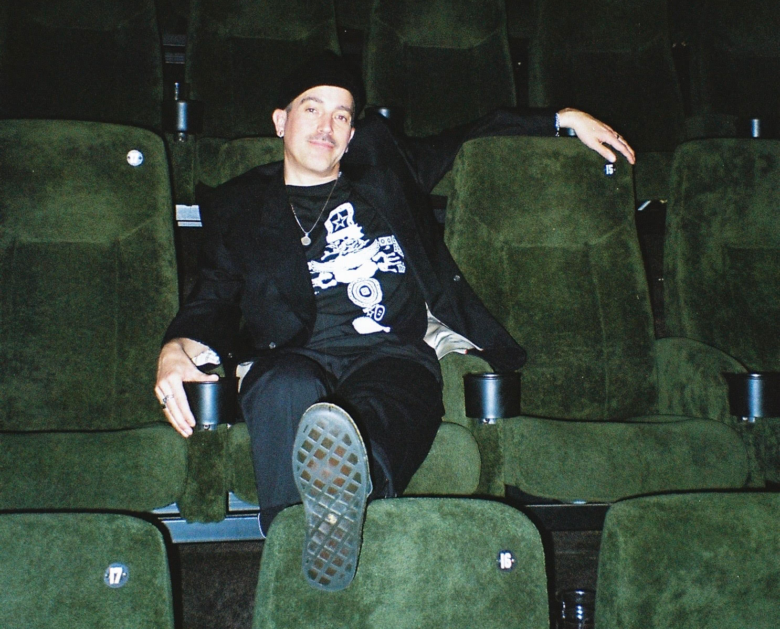
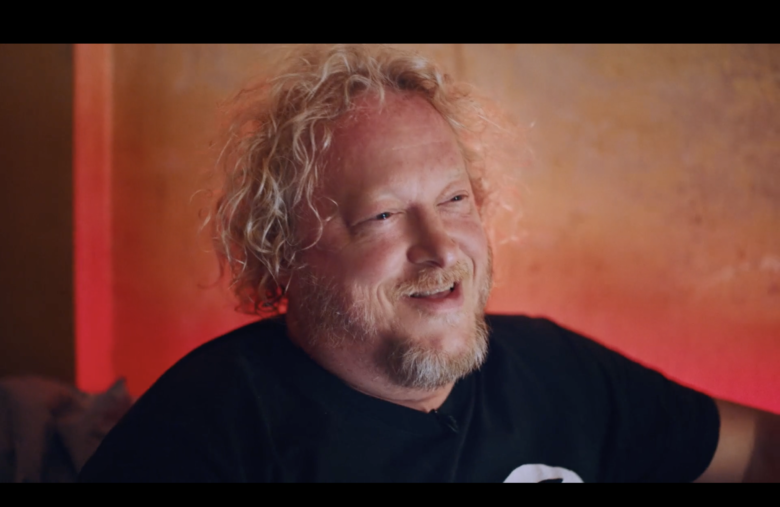
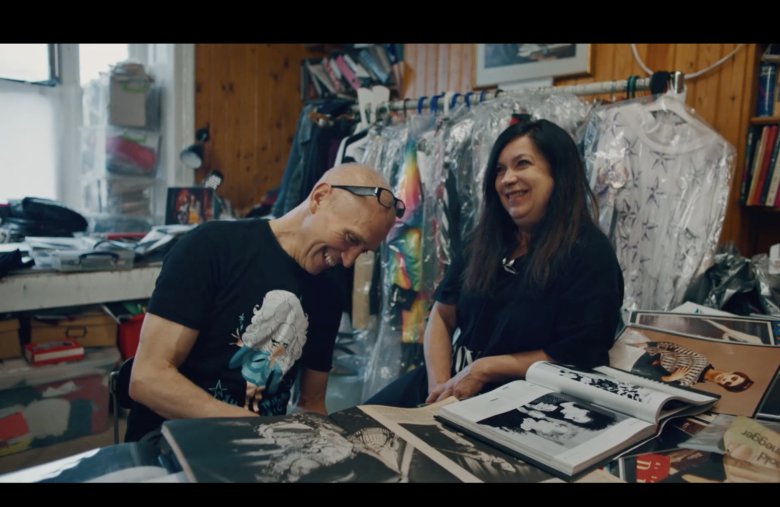
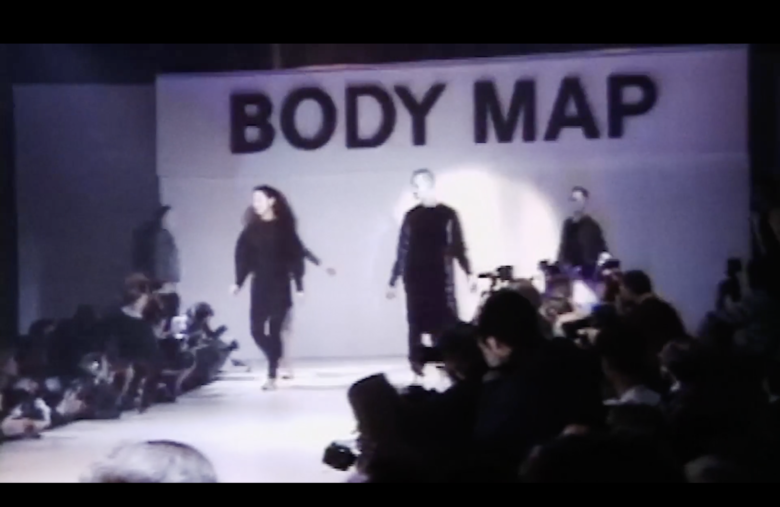
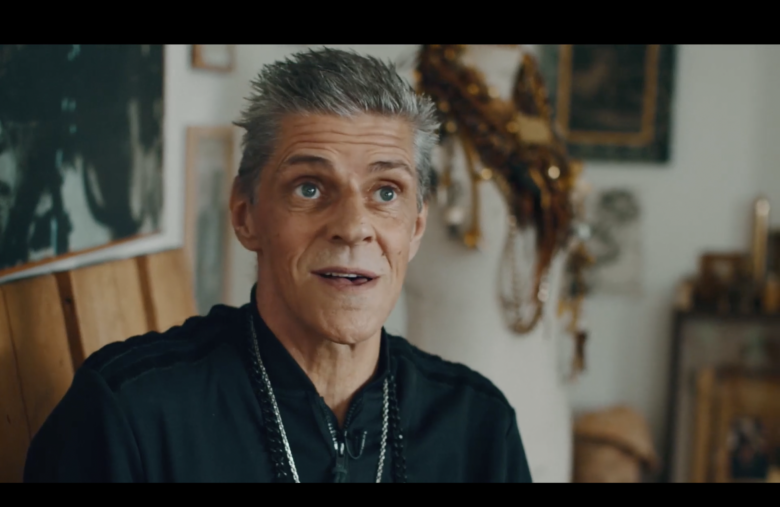
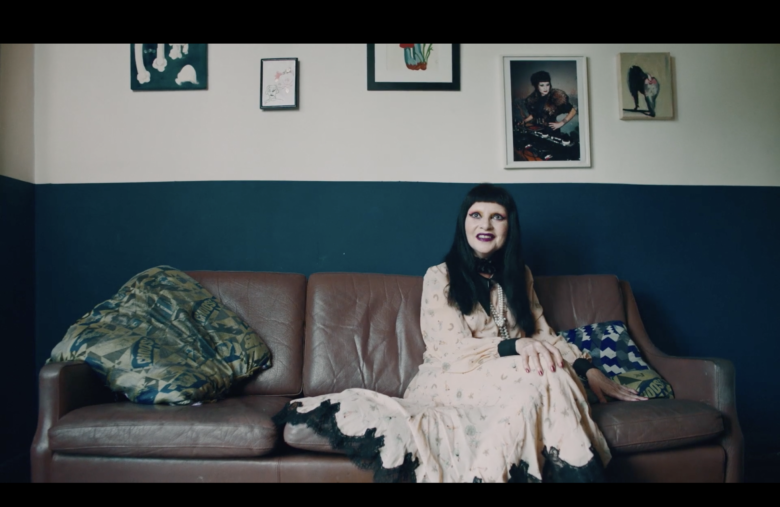
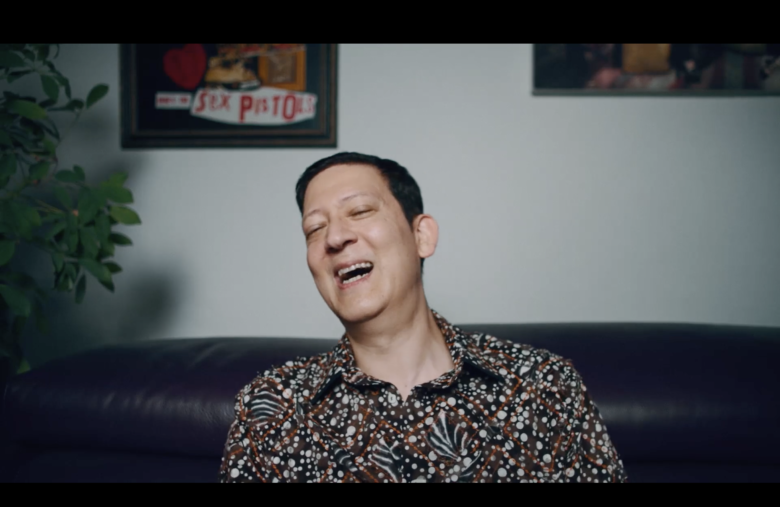
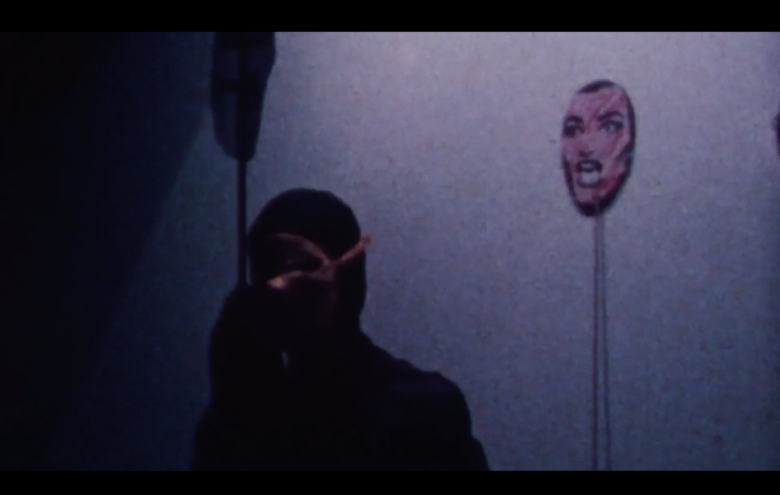
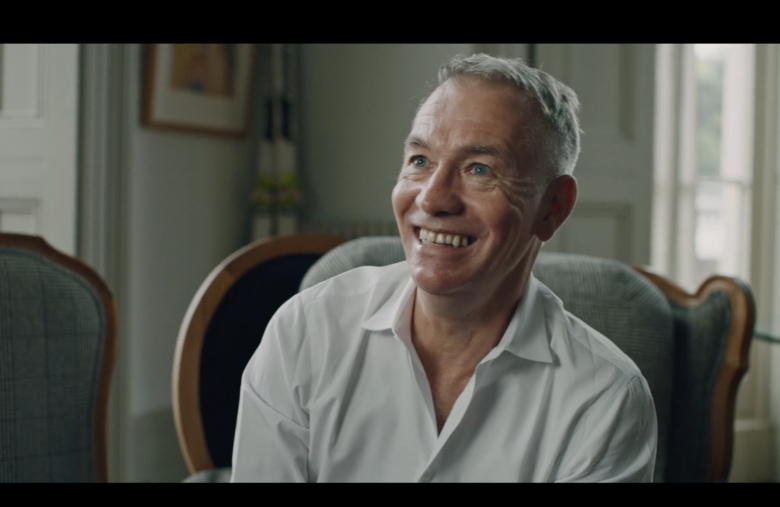
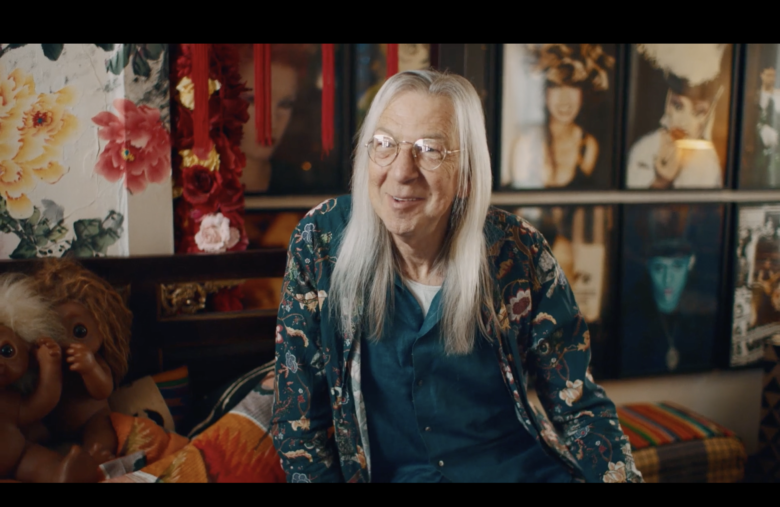
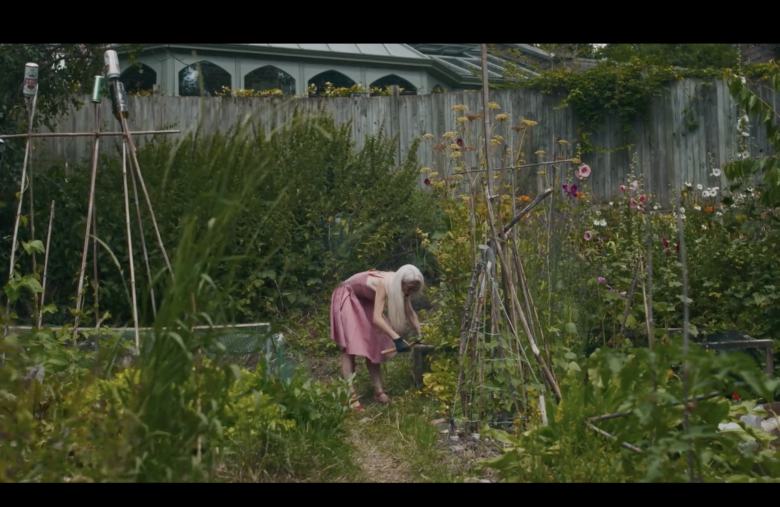
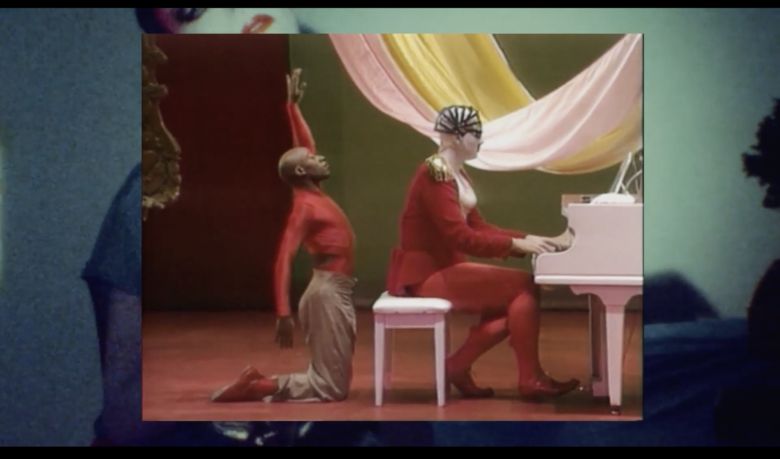
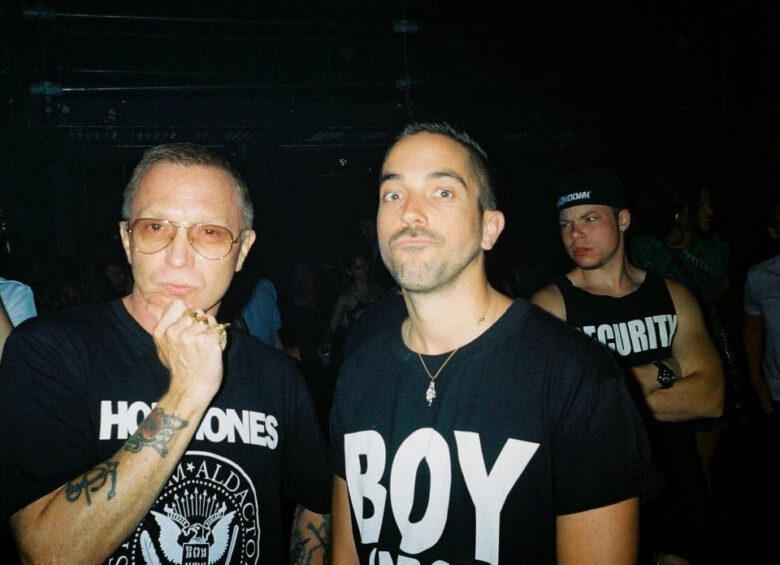
Be the first to comment on "OMG, a Q&A with filmmaker Kevin Hegge by Bruce LaBruce"